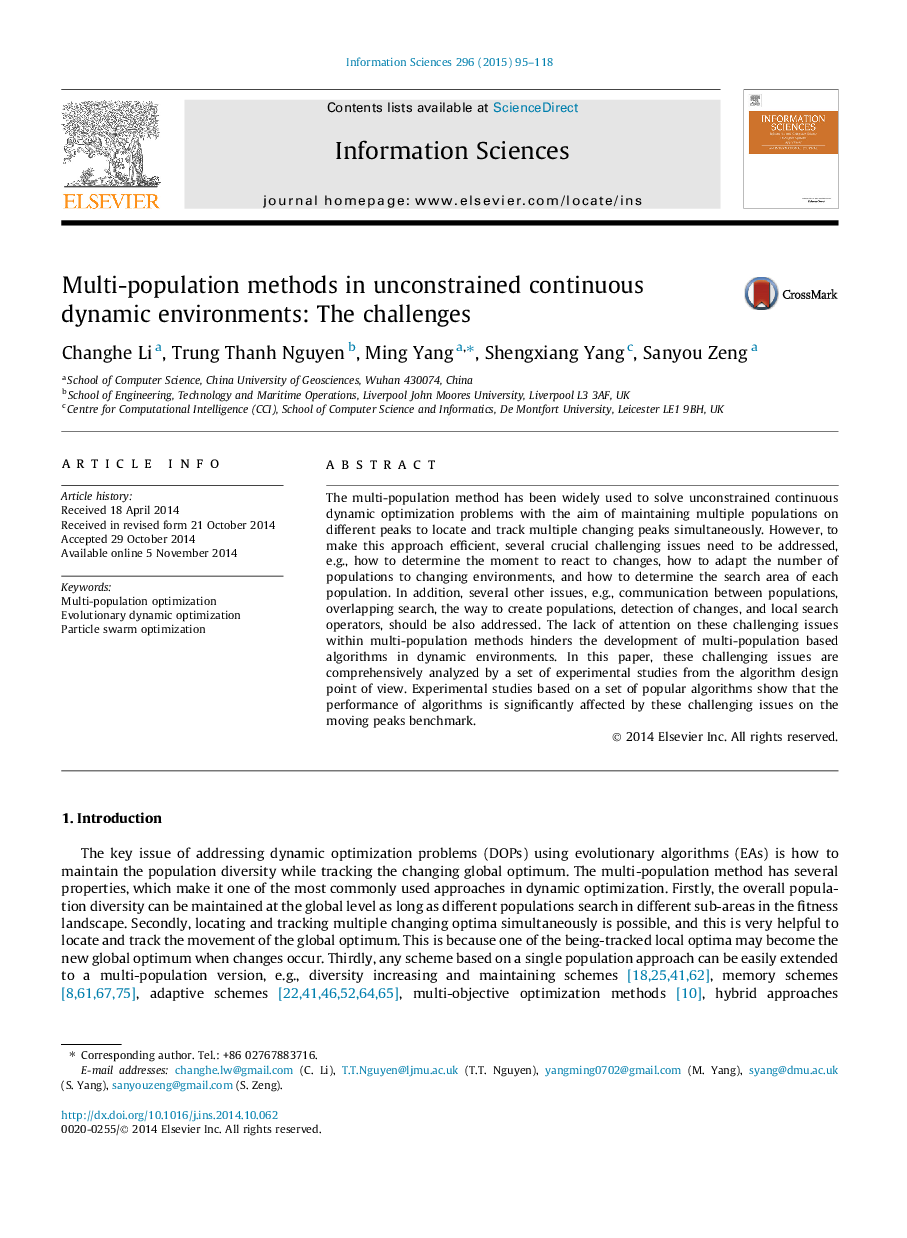| Article ID | Journal | Published Year | Pages | File Type |
|---|---|---|---|---|
| 392126 | Information Sciences | 2015 | 24 Pages |
The multi-population method has been widely used to solve unconstrained continuous dynamic optimization problems with the aim of maintaining multiple populations on different peaks to locate and track multiple changing peaks simultaneously. However, to make this approach efficient, several crucial challenging issues need to be addressed, e.g., how to determine the moment to react to changes, how to adapt the number of populations to changing environments, and how to determine the search area of each population. In addition, several other issues, e.g., communication between populations, overlapping search, the way to create populations, detection of changes, and local search operators, should be also addressed. The lack of attention on these challenging issues within multi-population methods hinders the development of multi-population based algorithms in dynamic environments. In this paper, these challenging issues are comprehensively analyzed by a set of experimental studies from the algorithm design point of view. Experimental studies based on a set of popular algorithms show that the performance of algorithms is significantly affected by these challenging issues on the moving peaks benchmark.
